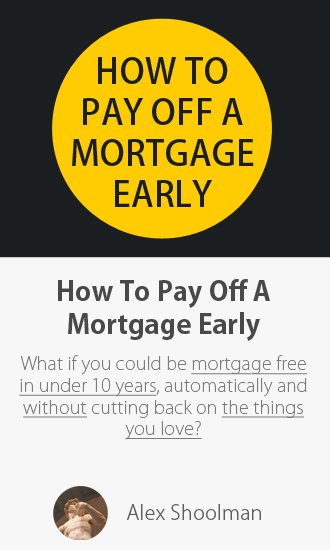This category of posts (First Home Buyer Tips) is meant to help noobs mutilate their mortgage in one of the most powerful ways know, by not starting with a high mortgage in the first place!
So you want to know how much you can borrow for your first home purchase huh? Well here’s a sneak peak: Don’t ask the bank!! :-)
If you’re asking this important question you are likely in a similar situation to what me and my wife were in not too long ago. We had a decent deposit built up and wanted to move out as quickly as possible (who doesn’t), but not without getting it right. We were thrilled that we were buying our first home and had done our research (as always), chosen the area’s that we thought were the best to live in and decided on what we really wanted in a house. We poured over the many domain.com.au and realestate.com.au listings for months comparing and learning about everything from building inspections to how big a room needed to be so it wouldn’t feel cramped. We weighed up all the sums and came at it from a very analytical point of view seeking out numerous websites and “tips” on how to figure out what that magical number was for us. However in the end we fell into the same trap most all FHB’s fall into, we didn’t consider our position in life first and instead just went with the flow.
To learn exactly the right way to answer this complicated and important question I thought we’d delve into a few of the common ways most people deal with it and why they’re wrong. Then we’ll explore the right way to approach this problem so that you can not only answer it, but set yourself up with a strong foundation for making all the other decisions later.
Table of Contents
The Typical Ways…
1. Ask the bank (or bank calculator tool) to spit out your magic number.
This is one of the most common ways FHB’s come up with their number. They are new to the field, have little or no idea what to do and can often be too proud to seek out advice or too lazy to research. Instead, the nice shiny “How much can I borrow?” calculators (for example the NAB Banks one) are available to privately tell you what to do in seconds. Although asking a bank how much you can borrow off them seems like a logical thing to do, you must understand that they’re just like the Real Estate Agents, they too have their own motivations. Banks of course want to make money, plain and simple. So asking them “how much can/should I borrow?” is like asking an alcoholic “How big a glass would you like?” when dishing out free booze – they’re just going to get greedy and you’ll be left with the tab. Instead of answering “How much can I borrow?”… they answer “What is the highest amount a bank will lend me?”. The bank wants to make money which means they want you to take out the biggest loan that you can still pay back. You do get an answer and it can help to give you a guide on what the limit is, but what those calculators spit out are NOT your answer unless you truly want to be a wage slave for 30 years. As humans we looooove to let the experts and their calculators guide our decisions. We naturally like going along with the flow as a group and so if a fancy tool online says you can borrow $600,000 who are we to argue?? That must mean we have to buy a $600,000 property as well yeah?
2. Ask your parents, friends or other people who have recently bought a house.
Another common way people come up with their number is by getting advice from others. Once again though they are thwarted as more often than not, parents and friends give horrible financial advice. When you really think about it, why would they give good advice? They likely know just as much as you! Sure, they may have already bought their first home but how likely is it they haven’t fallen into the same traps that you’re trying to avoid? Furthermore as humans, we all love to give out advice that matches what we’ve done, even when what we’ve done wasn’t actually the right thing to do. It’s called confirmation bias and it boils down to trying to convince others to do as we have done simply because it then confirms our beliefs (which in turn normally makes us feel all warm and fuzzy because we see ourselves as smarter). So again, instead of answering the question and providing you with what YOU should do in YOUR situation, they will likely just tell you what they did, and that you should do the same thing.
3. Visit a Mortgage Broker and have them figure it out for you.
You might go to a mortgage broker such as Mortgage Choice. Going to a mortgage broker is one of the better idea’s as they’ll be more open, honest and unbiased about telling you how much to borrow. Note: They do get commissions depending on what home loan packages they talk to you about so be weary of their suggestions and always take a day or more to fully think through and check what they say. It’s their business to be up to date on all the loans and deals and they’ll also help to guide you through a lot of the common mistakes and strange things that can happen during any home purchase all whilst costing you $0. This is the option that we opted for and I must say it has worked out extremely well (can you detect my confirmation bias?). They fully analyse your expenses and finances and gave us a lot of security as they basically confirmed all the calculations that we’d already done. They also helped us navigate the banks and I’m told can even get your forms processed quicker. However no mortgage broker will answer this question for you, all they can do is check the numbers side of things and get you a good deal on the actual loan itself. They will likely give you a number but it won’t have taken into consideration one very important fact that I’ll come back to soon.
Learning The Right Way…
So now that it’s clear how most go about answering this important question let’s have a dig into answering it the right way. Virtually every FHB skips a critical part when answering this question… putting yourself in proper context. What do I mean by this? Well you are currently at a position in your life and you should be mindful of that position. You might be 25, 30 or even 19 but either way you are currently at the point where you’re buying your FIRST home and unless you have millions of dollars already, you likely only have a modest deposit and nothing more.
What you need to realise is that you are at the bottom of the food chain. You don’t have 4 investment properties all fully owned and a mansion down at the beach… you’re just starting out and as such, you must purchase a “starting out” type of house. I’m sorry, I know it’s not what you likely want to hear. You want to hear that YES! You too can buy the home of your dreams! You too can have it all so simply and easily just sign here…. Well I’m afraid doing such a thing (whilst possible in this day and age and easy too) isn’t the wisest move.
This key point, knowing your position and keeping it in context, is critical and should be THE first thing to consider when answering this question of how much can I borrow. Most FHB’s as a default look at what they’ve been living in all their life (their parents’ home) and try and simply replicate or better that straight off the bat. “Oh, they have a 4 bedroom 900 meters square double story house with a rumpus room and pool? I’ll start looking for the same things but with a spa too!” – WRONG. You need a “starter house”.
The person you should be asking to answer this question isn’t a bank or a website calculator or a mortgage broker, the right person is you. It can only be you and no one else.
When you answer this important question you cannot think about how much a house costs or where you want to live or even what your maximum borrowing abilities are. No, you need to honestly look at your life (and your future for the next 10 years) and figure out how much money you can spare without getting yourself into trouble. It is almost certain that you will be moving out of your first house after a few years (5+). For most, it’s into a bigger house to make room for children so go into the buying process with this in mind. Ask your parents to describe the first house they purchased and see how it compares with what you’re imagining. Normally a FHB will be scheming to somehow go straight into a brand spanking new “dream home” when what they should be doing is making their choices based on their financial position.
The fact that gen X/Y have been greatly spoilt in comparison to the generations before also makes FHB’s feel like they are entitled to these dream homes by default. Now, I’m not one to stand in the way of someone’s dream and you are entitled to a very nice looking house like the one above… but just like you don’t go straight from high school to CEO, you don’t go from nothing to dream home. You need to fully map out some of the big items that you’ll have to pay for in the future such as marriage, children, travel overseas, car purchase(s) as well as the most important thing, the time limit to your mortgage.
When you open your loan, it should be for 30 years as this allows you safety to dial down the repayments if you run into troubles, but you should also have a goal of when you want to have it paid off by. Is it 10 years? 15? 5? If you can’t answer this question then you need to start doing some financial calculations as it is a key factor in shaping how much you can borrow and given you’re at Mutilate The Mortgage, I’m assuming you want that period to be quite short which means borrowing a smaller amount than your limit.
Greed
It takes a lot of will power to stop the greed and pure wants and desires we all have inside of us and instead do what we know is better for us. It’s never the fun thing. It’s never the easy thing. It’s never the “cool” thing. That’s why few people do it, but in the case of a house… it’s SUCH a monumental purchase that the effects of not doing the right thing ripples out across time for the next 10, 20 or even 30 years making your life at best hard and at worst entirely miserable and sending you bankrupt. When deciding how much to borrow it’s not just another question that has to be answered like “Do you need 2 or 3 bedrooms?” it is one of the key root decisions that form the rest of the tree. If you decide that you can only borrow $300,000 then it affects all your other decisions from then on, so you better give it the attention it deserves and get it right as otherwise all your work from then on will be wasted.
Instructions On Finding Out How Much You Can Borrow
- Figure out how long you want to be paying off your mortgage for (this should be aggressive and less than 10 years – yes I said 10 years)
- Imagine what your maximum repayments might be like if one of you is staying at home taking care of children
- Use any online repayment calculator tool and find out your borrowing amount given your time limit and repayment rate calculated above
- Accept that this is your first house, and thus you are not far enough along in life to own your dream home, but that it will come in time. Everyone starts somewhere
- Go to a mortgage broker and use their advice, skills and connection to complete the rest of the process, however tell them how much you are going to borrow
Example:
- John and Jane wish to pay off their home loan in 10 years.
- One earns $70,000 per year and the other earns slightly less at $50,000 per year. They imagine the worst case will be where one of them is working and the other is taking care of the children they plan on having in 2-3 years’ time. The one earning $70,000 a year will be working taking home approximately $55,450 after tax which is $2,132 per fortnight. After estimated expenses for a family of three, they estimate they will be able to afford mortgage payments of around $1,100 per fortnight max.
- Using the NAB calculator with the loan term set to 10 years, the interest rate set to 8% and with fortnightly repayments, it estimates they should be able to afford a loan of roughly $200,000 (maybe a smidge more)
Now it’s at this point that most of you will cry out “$200,000!? That’s barely enough to buy anything decent at all!” and you’re right (at least in Australia) as housing is VERY unaffordable. Fortunately the costs of housing is coming down it seems (although slowly) so it is a perfect time to stay where you are, wait, build your deposit and watch as houses get cheaper and cheaper. Also note that this couple should have a decent deposit of 20% (which is about $40,000 – $60,000) so they can potentially buy a house up to $260,000, maybe $280,000. This point about a 20% deposit is another thing that many FHB’s seem to think they don’t really need, yes, it takes sometimes a few years to save this money, that’s what being patient is for. Also yes, they won’t be buying their “dream home” right now as so many spruikers will promise you, but they will be buying their starter home, the home they will no doubt use as a stepping stone for their next house which will likely be bought in 5 years or less when a new child is born.
This style of thinking is often a big shock to FHB’s as said above, they’ve grown up in a world of “now”, they want and expect to get their dream home right now and will do anything, including leveraging themselves up to their eyeballs, to get it. Don’t be greedy. Don’t burden yourself with a monumental loan that you cannot easily pay down, it is extremely dangerous and will put great stress on you and your spouse over the long term. Start small and build up your buying power house by house. If you doubt this lesson, speak to anyone older than 40 about their property history and you will quickly learn that what is talked about now as “normal” is extremely strange in terms of previous historic terms.
The benefits include: 1) How to pay off your mortgage faster than 99% of people with one hour a month of work 2) How to get rid of your debt and have the freedom to spend money on the things you love, guilt free 3) Clear outline of how to setup your expenses, mortgage and general finance 4) How offset accounts work and how to get the same result without being gouged by the big banks 5) How to cut through the crap and focus on the things that truly matter when taking down a mortgage 6) How to adjust the strategy so it works for you, even if you have kids, even if you only have one income 7) How to do all of these things and maintain a normal social life (and never be cheap).



